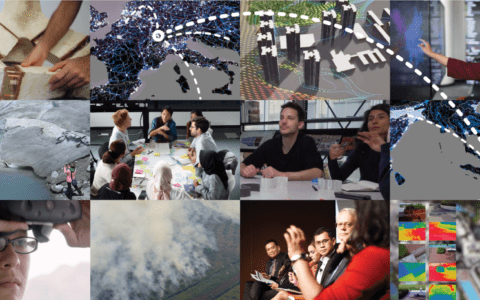Urban Potential and Strategies in Metropolitan Territories – The Zurich Metropolitan Region as an Example (NFP65)
The research project, Urban Potential and Strategies in Metropolitan Territories, provides an qualitative contribution to the current urban and spatial development debate in Switzerland and thereby does not differentiate between the urban, suburban or peri-urban categories, but rather along the selected urban qualities that have crystallized out of the numerous studies of concrete examples in the metropolitan region of Zurich.
At present, the initial political position and the continuing economic and population growth offer Switzerland a major opportunity to take charge of the qualification of the urban inventory, in addition to optimising it. In this connection, the pressing question of how urban qualities and potential outside the historical city centre, perhaps in the context of the metropolitan region, can be identified and promoted. With the goal of achieving a contribution to the questions, the research project Urban Potential and Strategies in Metropolitan Territories, part of the National Research Programme (NFP65), has focused on urban quality in Switzerland over the past four years. Based on three broadly applied case studies in the Zurich metropolitan region, the project has managed to provide terminology, methodology and theoretical contributions to the current urban and spatial development debate in Switzerland. The following findings are central to this debate:
- An isolated examination of spatial situations and phenomenon would not be suitable for the complexity of current spatial development. The built environment is always a reflection of social and economic processes and must be posed within the context of regional and global urbanisation processes.
- The concept of urbanisation must be reformulated in the context of contemporary urban regions and adapted to changed spatial requirements. An orientation of spatial development on a historical urban concept no longer corresponds to today’s socioeconomic and social realities.
- Urbanisation is a gradual concept that is produced in the interaction of certain urban characteristics, respectively, qualities. A selection of such urban qualities can serve as a fundamental element in planning and construction as well as a basis for the development of concrete urban design strategies and measures.
- Urban qualities are the result of a combination of urban design and socio-spatial aspects. To specifically stimulate these qualities needs the promotion of strategies and measures from diverse areas of expertise as well as a corresponding understanding in relation to the spatial priorities in politics, economics and society.
- The evaluation of the current situation as well as the definition of goals and criteria for spatial development must be discussed in relation to their normative background. A transparent discussion about conflicts around values and goals is considered to be a firm component of the planning and design process.


